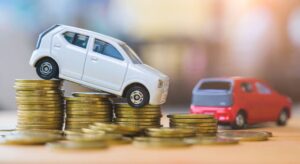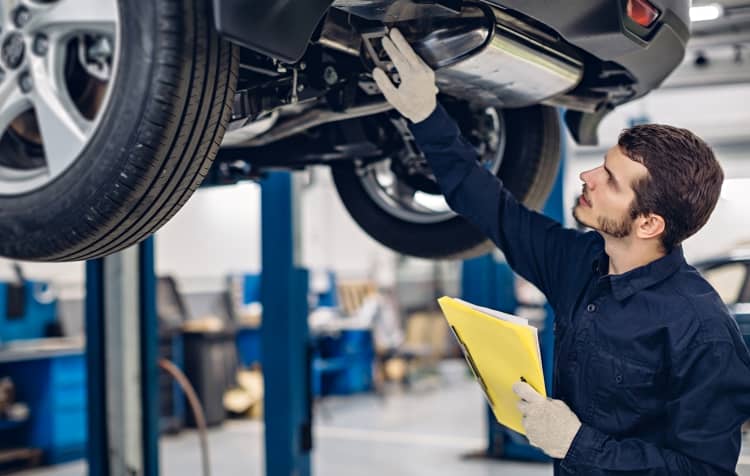
Practically everyone knows the adage – when you drive a brand-new car off the dealership’s lot, its value immediately plunges. This phenomenon is colloquially known as depreciation. While it’s an unavoidable reality of vehicle ownership, understanding how car depreciation works and taking proactive steps can drastically mitigate its financial impact.
Whether you’re a seasoned car owner or a first-time buyer, this car depreciation guide will unveil the ins and outs of vehicle depreciation. In this car depreciation value guide, we’ll take a close-up look at the factors influencing a vehicle’s deprecation rate, share some strategies to minimise its effects, and offer helpful insights into smart purchasing decisions that can help you retain your vehicle’s value for longer.
Understanding Car Depreciation
Anyone in the market for a new or used vehicle should have at least a basic understanding of what car depreciation is and why it happens. Essentially, depreciation refers to the decline in a vehicle’s value over time. It’s a natural and expected occurrence that affects every vehicle, regardless of make or model and understanding depreciation is important because it directly impacts your financial well-being as an automobile owner.
Several key factors contribute to car depreciation. First, brand-new cars experience the most significant depreciation the moment they leave the dealership lot. Typically, these vehicles will lose around 20-30 per cent of their value in the first year alone.
Mileage also plays a big part, as higher mileage generally leads to a more rapid depreciation. Vehicle age, maintenance history, and market demand are also factors that affect a vehicle’s depreciation rate. Contrary to what you might expect, luxury cars often depreciate faster than economy models due to higher initial purchase prices, expensive maintenance costs, and lower-than-average demand in the long run.
At the end of the day, understanding car depreciation empowers automobile owners to make more informed choices when buying, selling, or maintaining a vehicle – ensuring that you get the best value for your automotive investment over time.
Tips to Reduce Car Depreciation
Although car depreciation is inevitable, there are several strategies to reduce its impact and preserve your vehicle’s value and longevity. Here are some essential tips to help you mitigate depreciation:
- Choose Wisely – If you’re looking to buy a new or used vehicle, try to select a car with a reputation for holding its value well. Research models are known for their reliability and longevity, as these tend to depreciate at a slower rate. Popular brands with a history of durability often retain their value much better than alternatives.
- Buy Used – New cars experience the most dramatic depreciation in the first few years of ownership. Purchasing a slightly used or certified pre-owned vehicle means you can avoid the steepest depreciation curve. These cars are generally well-maintained and often come with warranties or maintenance packages that can provide greater peace of mind.
- Routine Maintenance – Consistent maintenance is vital to keep your car in good condition. Well-maintained vehicles depreciate at a much slower rate, so it’s recommended that owners follow the manufacturer’s recommended service schedule, address any issues promptly, and keep detailed records of all maintenance and repairs.
- Limit Driving When Possible – Higher mileage can accelerate depreciation. Try to avoid unnecessary driving and use alternative transportation when possible. If you have a longer commute, you might consider a vehicle known for its fuel efficiency or carpooling to reduce wear and tear.
- Avoid Customisations – While many motorists enjoy personalising their vehicles, excessive customisations can hurt the vehicle’s resale value. Many buyers prefer stock or factory-standard vehicles, so it’s best to avoid modifications that are difficult or costly to reverse.
- Covered Parking – Protect your vehicle from exposure to the elements as much as possible by parking it in a garage or covered space. Exposure to harsh weather conditions, UV rays, and other environmental factors can lead to faster wear and tear and expedited depreciation.
- Sensible Driving – Safe, sensible driving not only reduces the risk of injury and collisions but also minimises the wear and tear on your vehicle. Avoid aggressive driving, potholes, and rough terrain whenever possible. Defensive driving techniques can help prevent crashes and excess wear that will affect your vehicle’s value.
- Well-Timed Sale – If you plan on selling your vehicle, try to plan your sale accordingly. In many cases, selling before major maintenance or repairs become necessary can yield a higher resale value. Additionally, consider the current market trends as well as the demand for your specific make and model.
Reducing car depreciation requires a combination of smart purchasing decisions, proper maintenance and upkeep, and responsible driving habits. With these tips, you can help slow the rate of depreciation and potentially save money in the long run when it comes time to sell or trade in your vehicle.
Adding Car Protection Accessories
Protective accessories like mud flaps, splash guards, and car covers can shield your vehicle’s exterior from debris, road salt, and harsh weather conditions, preventing damage and corrosion. Clear bra paint protection films are excellent solutions for safeguarding your vehicle’s paint job against chipping and scratches from rocks and debris.
Interior protection accessories may include things like floor mats, seat covers, and cargo liners that shield against spills, stains, and general wear and tear. Installing a window tint helps protect the interior from harmful UV rays and keeps the interior cooler in hot weather, reducing the likelihood of upholstery fading.
Security accessories like car alarms, steering wheel locks, and tracking devices can add a layer of protection against theft, and can even lower your insurance premiums. Investing in these accessories can extend the lifespan of your vehicle, improve its resale value, and reduce depreciation.
Summary
We hope our guide to car depreciation has been informative. Understanding and addressing vehicle depreciation is essential for both financial prudence and maintaining the value of your vehicle. When automobile owners make informed decisions during the buying process, properly maintain the vehicle, and adhere to responsible driving habits, they significantly reduce the rate of depreciation. Additionally, considering car protection accessories can further safeguard your vehicle by preserving critical interior and exterior components.
Remember that depreciation is an inevitable part of car ownership, but with the right strategies and proactive measures, you can minimise its impact, save money in the long run, and enjoy a more satisfying and cost-effective driving experience.
